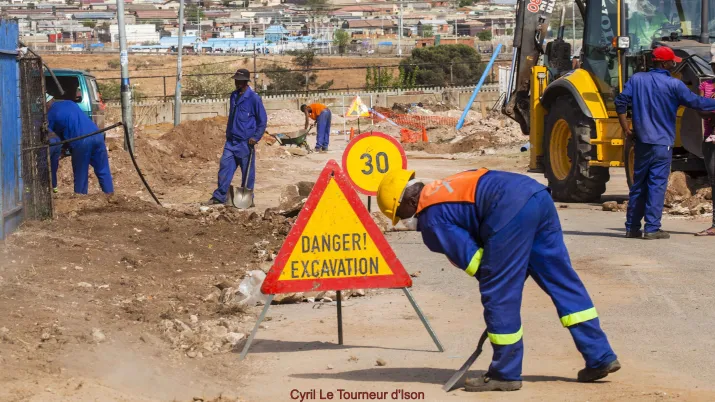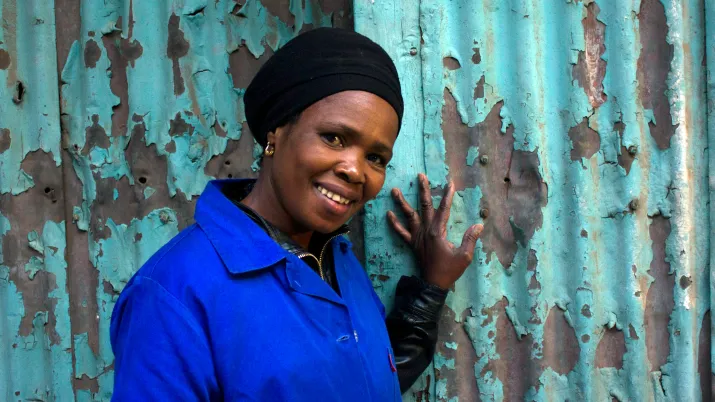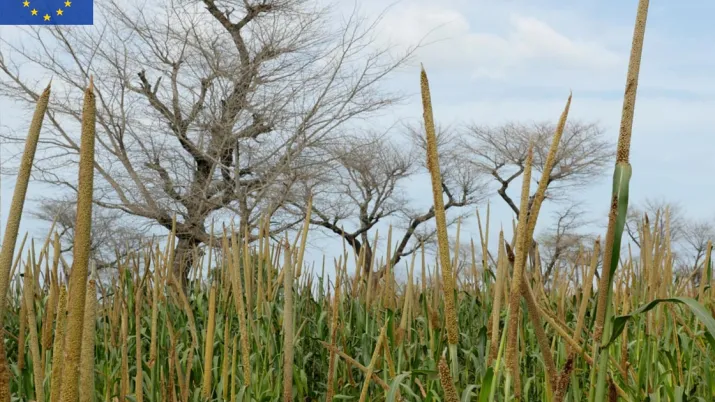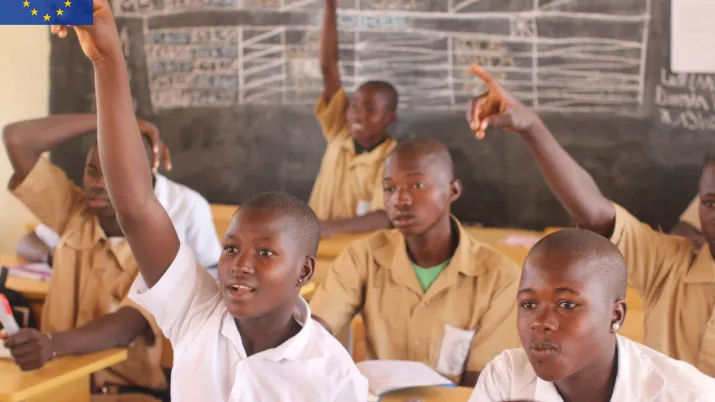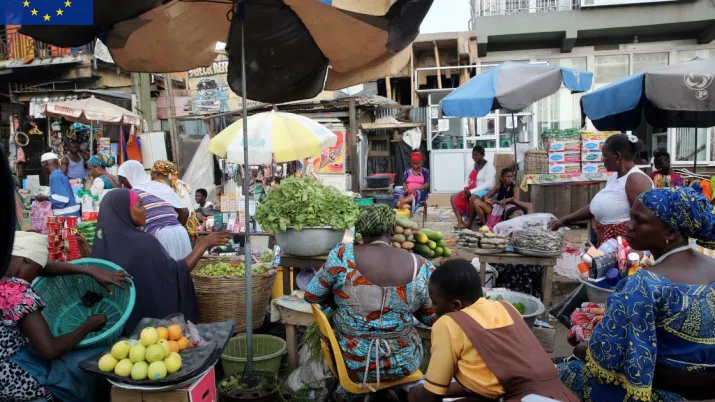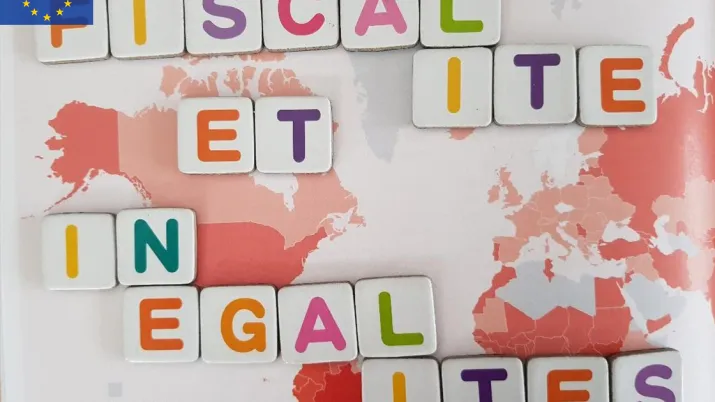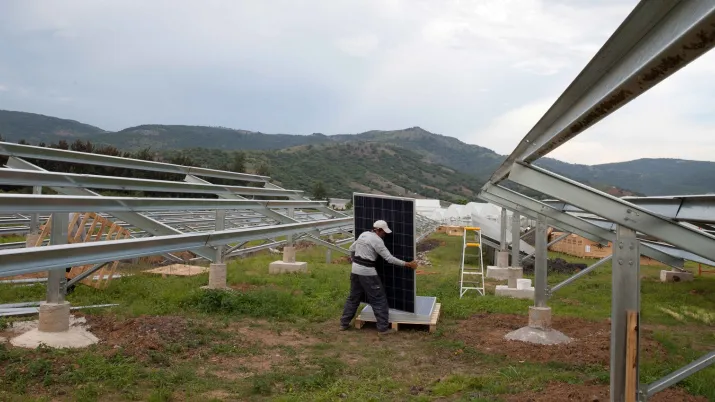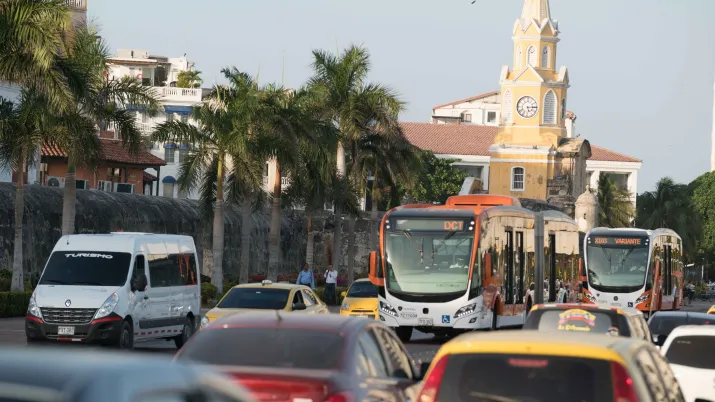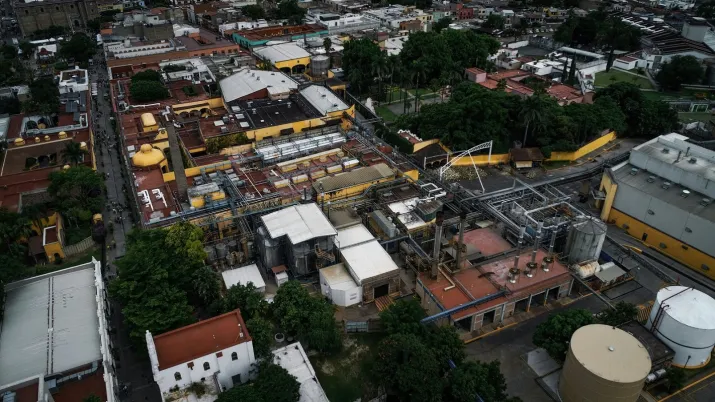 The content of this project information sheet falls under the sole responsibility of the AFD and does not necessarily reflect the opinions of the European Union.
The content of this project information sheet falls under the sole responsibility of the AFD and does not necessarily reflect the opinions of the European Union.This project is carried out with the support of the European Union
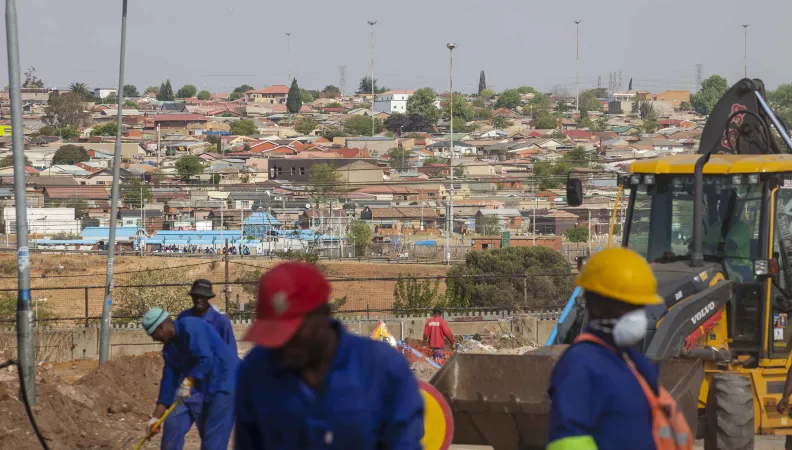 Legal notice EU (project) How could the Social Relief Distress grant be redesigned to maximize impact on poverty and unemployment reduction, while being sustainable in the longer term? The Extension of the EU-AFD Research Facility on Inequalities will seek to answer this question in partnership with SALDRU (University of Cape Town – Southern Africa Labour and Development Research Unit).
Legal notice EU (project) How could the Social Relief Distress grant be redesigned to maximize impact on poverty and unemployment reduction, while being sustainable in the longer term? The Extension of the EU-AFD Research Facility on Inequalities will seek to answer this question in partnership with SALDRU (University of Cape Town – Southern Africa Labour and Development Research Unit).
Context
South Africa’s Economic Reconstruction and Recovery Plan was launched in October 2020 by the Presidency in response to the economic impacts of the Covid-19 pandemic. Besides the Presidential Employment Stimulus program, it included emergency social protection measures, among which the introduction of a special Covid-19 Social Relief of Distress grant (SRD), providing ZAR350 per month for unemployed people not covered by any other form of support. The South African government now seeks to develop options for the future of SRD grant.
This project is part of the Extension of the EU-AFD Research Facility on Inequalities. Coordinated by AFD and financed by the European Commission, the Extension of the Facility will contribute to the development of public policies aimed at reducing inequalities in four countries: South Africa, Mexico, Colombia and Indonesia over the period 2021-2025.
Objectives
The objective of this research project is to produce motivated recommendations on how the SRD should be designed going forward into the longer term, in order to maximize the impact of the grant on employment outcomes and to ensure it effectively reduces poverty, while maintaining its cost to an acceptable level:
- To maximise the impact of the grant on employment, the project needs to understand how to design and label the grant to encourage its use for job search.
- To ensure the grant effectively reduces poverty, the project must figure out the most cost-effective way to target and assess the eligibility of recipients. Moreover, poverty reductions can be scaled up by determining measures that could encourage take up among the most disadvantaged.
Once these goals have been achieved, and in order to inform public decision-making, these findings must be communicated to a number of stakeholders in government and civil society.
This project is part of a wider research program conducted with several South African research centres and in close collaboration with the South African Presidency. Four other research projects analysing the externalities of the Covid-19 stimulus policy are currently being developed as part of the first pillar of the Extension's activities in South Africa.
Method
This research project uses the model generated to conduct the 2014/2015 fiscal incidence assessment and introduces updated data for 2019-2021. It simulates five scenarios around eligibility criteria, targeting mechanisms, value, disbursement model and conditionalities and computes the potential impact on poverty and employment outcomes.
Research findings
You will find below the research paper related to this project:
It is worth noting that another paper has been published on the implications of the SRD grant, funded by AFD outside the Research Facility on Inequalities: Systemic exclusion from a South African social assistance transfer (February 2024)
Contact
-
Anda DAVID
Economist, scientific coordinator of the EU-AFD Research Facility on Inequalities

Discover other research projects
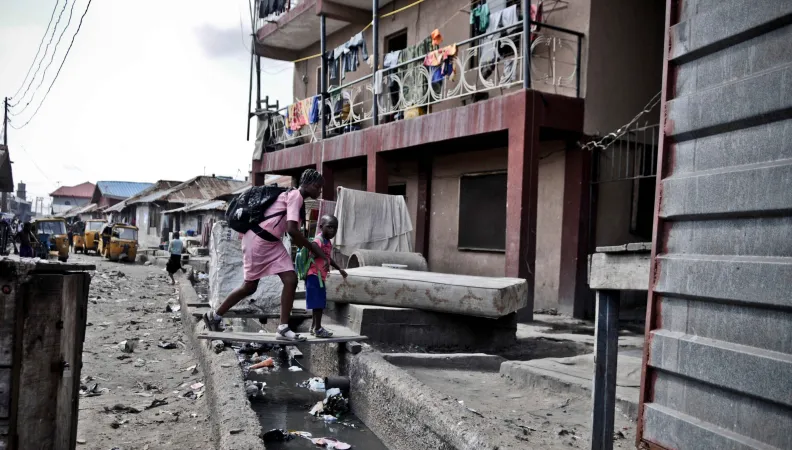 Legal notice EU (project) Through which channels did the Covid-19 pandemic impact inequalities in Togo? What have been the effects of the “Novissi” cash transfer program implemented by the Togolese government on the mitigation of income inequality? The EU-AFD Research Facility on Inequalities will seek to answer these questions in collaboration with the University of Lomé.
Legal notice EU (project) Through which channels did the Covid-19 pandemic impact inequalities in Togo? What have been the effects of the “Novissi” cash transfer program implemented by the Togolese government on the mitigation of income inequality? The EU-AFD Research Facility on Inequalities will seek to answer these questions in collaboration with the University of Lomé.
Context
Research has already shown that some population groups have been harder hit by Covid-19 than others and that the pandemic exacerbated existing inequalities in many areas, including health, education, work, and gender.
In this context, inequality has become a central issue for governments willing to fight the effects of the pandemic and to better prepare for future shocks. In April 2020, the Togolese government set up a cash transfer program called "Novissi", with the financial contribution of AFD, to support any eligible Togolese citizen who lost his or her income due to the adoption of the response measures against Covid-19.
This project is part of the call for research proposals “Advancing the inequality agenda through collaborative research: identifying the priorities for a global Team Europe approach on inequalities”, launched by the Strategic Committee of the Research Facility on Inequalities. It is coordinated by AFD and co-financed by the European Commission, AECID and ENABEL.
Objectives
Studies using updated data and capturing the potential effects of the Covid-19 pandemic on income inequality and poverty in Togo are relatively scarce. This research project aims to fill the gap in academic literature by analyzing the impacts of Covid-19 on inequality in Togo, and evaluating the effects of the Togolese social policy « Novissi » on mitigating the impact of Covid-19 on inequality.
Method
Using rich microeconomic data from a survey conducted by Togo's Institut National de la Statistique et des Études Économiques et Démographiques (INSEED) aimed at analysing the impact of the Covid-19 pandemic, the research team will estimate an econometric model based on the model developed by Dang and Nguyen (2021).
Results
Due to methodological limitations and data availability constraints, this project did not lead to a publication. Further information is available upon request.
Contact
-
Anda DAVID
Economist, scientific coordinator of the EU-AFD Research Facility on Inequalities

Discover other research projects
Agroecology public policies and income inequalities in rural regions in Senegal
Completed
2018 - 2020
Inequalities in access to basic services and impact of public policies in Côte d'Ivoire
Completed
2018 - 2019
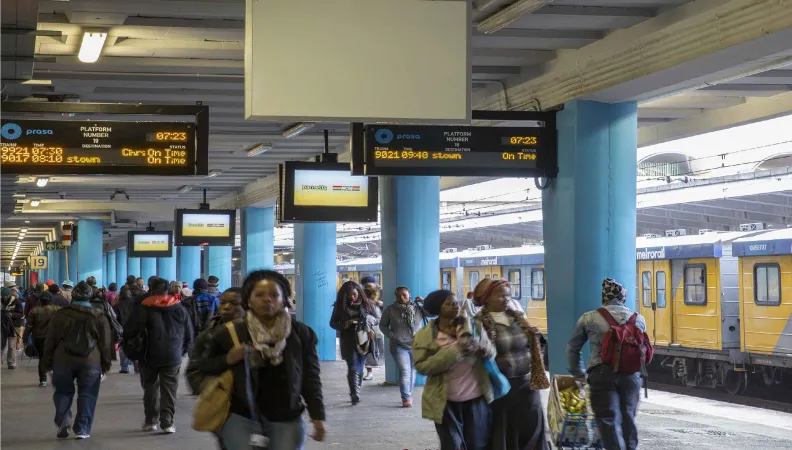 Legal notice EU (project) How do spatial variation in inequality and quality of institutions interact to explain variation in subjective wellbeing in South Africa? The EU-AFD Research Facility on Inequalities will seek to answer this question in collaboration with the University of Cape Town (UCT).
Legal notice EU (project) How do spatial variation in inequality and quality of institutions interact to explain variation in subjective wellbeing in South Africa? The EU-AFD Research Facility on Inequalities will seek to answer this question in collaboration with the University of Cape Town (UCT).
Context
Despite several efforts to promote pro-poor growth, South Africa remains one of the most unequal countries in the world. While the country's colonial history and apartheid are known to have contributed to this inequality level, the nature and dynamics of its impact on society are yet to be fully understood.
Literature suggests that better institutions and lower level of inequality improve subjective wellbeing. However, evidence that examine how the interaction between these two variables explain variation in wellbeing is relatively scarce. This study will thus contribute to a deeper understanding of inequalities in South Africa.
This project is part of the call for research proposals “Advancing the inequality agenda through collaborative research: identifying the priorities for a global Team Europe approach on inequalities”, launched by the Strategic Committee of the Research Facility on Inequalities. It is coordinated by AFD and co-financed by the European Commission, AECID and ENABEL.
Objectives
This research project has two main objectives:
- Explore how variations in governance (such as audit outcomes) across South Africa's district municipalities explain the variation in the well-being of individuals.
- Investigate how the interaction between the variation in governance across local government municipalities and inequality among individuals explains variation in subjective well-being.
Method
To investigate the interactions between the quality of institutions and of the governance, the level of spatial inequality and the subjective wellbeing, researchers will use the National Income Dynamics Study (NIDS), a nationally representative survey of individuals across South Africa, which is repeated over five waves between 2008 and 2017. They will also use audit outcomes of local municipalities to proxy for the quality of governance.
Results
You will find below the research paper related to this project:
Contact
-
Anda DAVID
Economist, scientific coordinator of the EU-AFD Research Facility on Inequalities

Discover other research projects
 Legal notice EU (project) The Extension of the EU-AFD Research Facility on Inequalities in partnership with CEEY will design proposals for the design of care systems at level of federal states and of municipalities, which will further support the progress in reducing the inequalities and foster social mobility.
Legal notice EU (project) The Extension of the EU-AFD Research Facility on Inequalities in partnership with CEEY will design proposals for the design of care systems at level of federal states and of municipalities, which will further support the progress in reducing the inequalities and foster social mobility.
Context
This project is a follow-up of the research project developed by CEEY and El Colegio de México in the first phase of the EU-AFD Research Facility on Inequalities. The results showed the need for structural changes to break the bottlenecks of social mobility and reduce inequality in Mexico.
Based on the above, the new phase of the project focuses on the knowledge base that will inform the setting up of care systems in the states of Guanajuato and Nuevo Leon and in the municipality of San Pedro Garza Garcia.
Guaranteeing the right to care in the Constitution is essential to advance on the basis of social consensus. In order to define the articulation mechanisms in a law, it is necessary to understand the care systems at different levels as transversal and multipurpose policies that are worth discussing collectively, as they imply much more than the already great challenge of expanding the existing infrastructure of services and social spending. The Care Economy also implies creating fiscal strategies to redistribute paid and unpaid work, adapted policies for those who require care and for caregivers, social co-responsibility and co-responsibility of the private sector.
Therefore, it requires more and better statistical information, strengthening surveys and data systems, as well as developing studies to make visible the interdependence of care with multiple agendas, identifying care needs and their characteristics, available supply and unmet demand, allowing for strategic planning and follow-up from the short to the long term, starting with priority groups that include children, people with disabilities, the sick and elderly, and their caregivers.
This project is part of the Extension of the EU-AFD Research Facility on Inequalities. Coordinated by AFD and financed by the European Commission, the Extension of the Facility will contribute to the development of public policies aimed at reducing inequalities in four countries: South Africa, Mexico, Colombia and Indonesia over the period 2021-2025.
Objectives
Given the above context, the objective of this project is the construction of two products that address two identified needs:
- a design proposal for a state and municipal-level care system: it is necessary to develop a care system designs that address the structural inequalities for which their creation is sought. In this sense, it is necessary to establish a complete, functional and sustainable design.
- a proposal for the collection and systematization of primary information for the design and/or monitoring of the care system: a second need arises from the above in terms of systematization of primary and administrative information that feeds, as far as possible, the original design of the care systems, as well as their monitoring over time.
Research findings
You will find below the research papers related to this project:
- Social mobility, care policies and social protection (August 2024)
- Social mobility, care policies and social protection policies in Nuevo León (September 2024)
Contact
-
Anda DAVID
Economist, scientific coordinator of the EU-AFD Research Facility on Inequalities

Discover other research projects
 Legal notice EU (project) What are the distributional effects of green taxes in Mexico and how can they be quantified? The Extension of the EU-AFD Research Facility on Inequalities program seeks to answer this in collaboration with RIBOS and the researches of the Laboratorio National de Politicas Publicas (LNPP) to provide to Mexican policymakers and stakeholders timely analyses of the effects of environmental tax policies on inequalities.
Legal notice EU (project) What are the distributional effects of green taxes in Mexico and how can they be quantified? The Extension of the EU-AFD Research Facility on Inequalities program seeks to answer this in collaboration with RIBOS and the researches of the Laboratorio National de Politicas Publicas (LNPP) to provide to Mexican policymakers and stakeholders timely analyses of the effects of environmental tax policies on inequalities.
Context
This research project proposes to estimate the distributive effect of gasoline taxes using a fiscal incidence considering these effects in the context of Mexico´s fiscal system, including the principal tax and spending instruments.
In 2014, Mexico’s Finance Ministry (SHCP) introduced a special tax (IEPS) on carbon as a green tax aimed at reducing the green gas emission associated with fossil fuels, mainly gasoline and diesel. However, the tax revenue (4699 million pesos in 2014) and the environmental impact of this tax are marginal: in the past decade, until 2014, this tax had a negative value, thus working as a subsidy. Since that year, it became a tax, which has grown significantly in recent years, representing close to 300 billion pesos in 2019 and 2020. This is therefore in effect by far the most important green tax implemented in Mexico today.
This analysis is of particular interest for Mexico at present because the transition from fuel subsidies to fuel taxes represents in effect the principal tax reform implemented in Mexico over the last decade in terms of both tax revenue (from -300 to +300 billion pesos in tax revenue) and distribution. Gasoline taxes have significant impacts on all the population, both directly on middle- and higher-income households through private transport, but especially indirectly for lower income households through public transport and transport costs for all goods and services, notably food. Preliminary analysis at the Fiscal Policy Equity Lab (FPEL) reveals that the increase in the indirect tax burden for the poor associated to gasoline taxes may reverse the effect poverty-reduction effect of direct transfers, even after their recent expansion.
Quantifying these impacts precisely will allow the design of compensatory instruments to protect the poorest and most vulnerable groups from the regressive effects of these taxes.
This project is part of the Extension of the EU-AFD Research Facility on Inequalities. Coordinated by AFD and financed by the European Commission, the Extension of the Facility will contribute to the development of public policies aimed at reducing inequalities in four countries: South Africa, Mexico, Colombia and Indonesia over the period 2021-2025.
Objectives
This project is a joint undertaking between RIBOS, CEQ Institute and LNPP. It seeks to estimate the effect of green taxes in the context of the overall Mexican tax system through the international methodology developed by the Commitment to Equity Institute (CEQI), using INEGI data from the Encuesta de Ingresos y Gastos de los Hogares (ENIGH) for 2014-2020, among other data sources.
This methodology will allow an estimation the effect of green taxes in the context of the overall fiscal system. This methodology facilitates comparability in time and space, and generates a wide variety of incidence indicators, including effects on the income Gini coefficient as well as income poverty using national and international poverty lines.
This project ultimately aims to provide Mexican policy makers and stakeholders with timely analyses of the effects of tax policies on inequality and poverty. The research conducted will therefore result in:
- a research paper,
- a policy brief whose analysis is based on the collaborative intelligence technique. Two sessions in which the model calibration and hypotheses will be discussed following the collaborative modeling framework. Participants in the sessions will be members of the expert network and key tax policy makers.
Research findings
You will find below the research paper related to this project:
- Distributive impact of green taxes in Mexico (July 2024)
The policy brief related to this project will be published here soon.
Contact
-
Anda DAVID
Economist, scientific coordinator of the EU-AFD Research Facility on Inequalities


